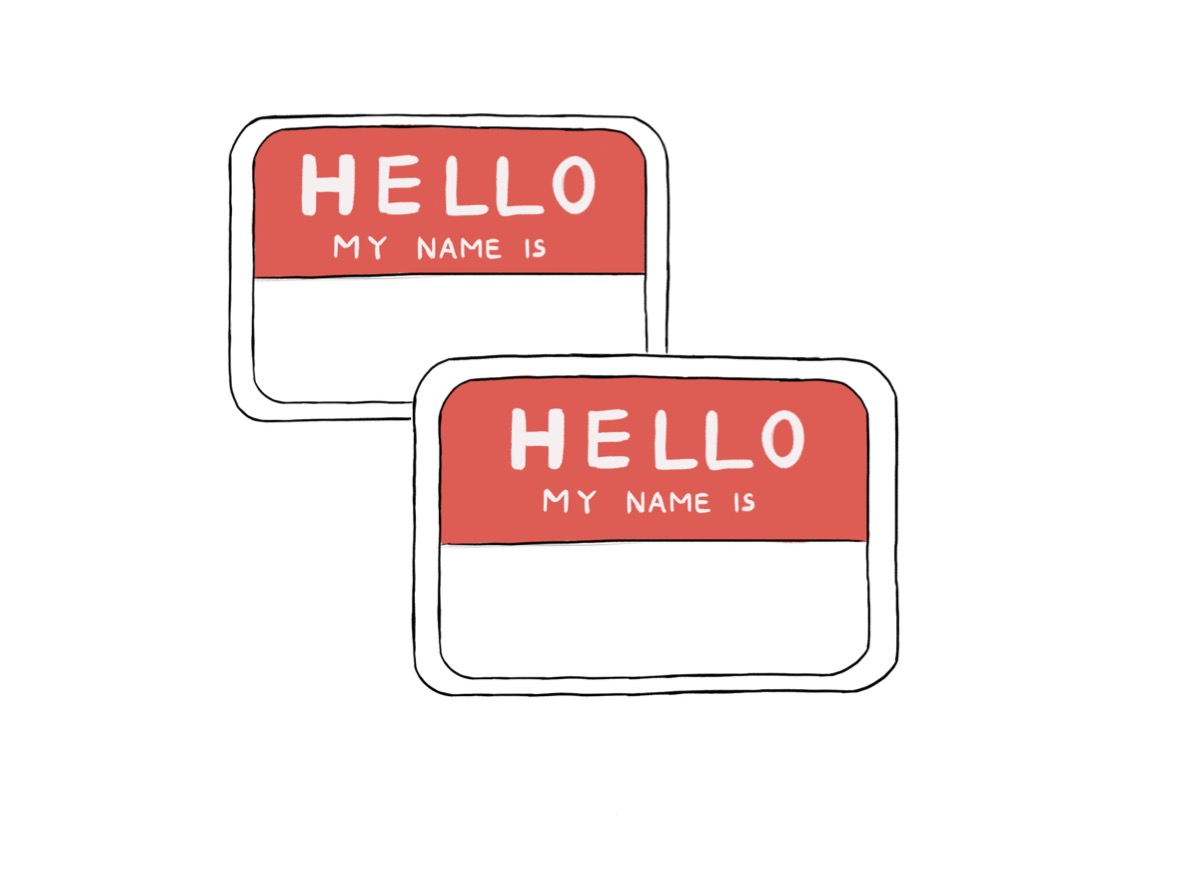Growing up, just about every coming-of-age movie and school assembly skit featured the same key message: Labels don’t define a person. Although we’ve progressed past the point of outwardly using terms like “band geek,” today’s society is obsessed with labels more than ever.
The only difference? From personality types, to zodiac signs and aesthetics, we’ve added countless superficial labels to our rotation. We eagerly slap them on ourselves in an endless quest for self-identity.
This new way of labeling isn’t as harmless as it appears.
A closer look at trending labels reveals that although the terms are fresh, the problematic ideas behind them are not. Women remain primary targets for pigeonholing; despite Gen Z seeming to reject the “it girl” stereotype once touted by Victoria’s Secret Angels and Barbie dolls, we continue to glorify the exact same traits but using different wording.
Across TikTok, curated videos imply that if you buy certain clothing or mimic the routine of the pretty girl in the frame, you’ll be rewarded with the coveted title of “vanilla” or “clean girl.” This trend’s biggest offense isn’t just convincing us to splurge on skincare products and gold jewelry. As viewers have rightly pointed out, the videos almost always idealize someone who is thin, white and blonde.
By hiding behind cutesy and frivolous names, labels like “vanilla girl” enable us to perpetuate exclusive beauty standards without consequences.
Self-labeling isn’t exclusive to women or social media users. The Myers-Briggs Type Indicator, which claims to sort people into 1 of 16 personality types, has little scientific backing; despite this, it’s often upheld as a legitimate exercise across schools and workplaces. I took this test in high school and I have a hunch that my result — the quiet and sensitive “mediator” personality type — doesn’t reflect my true identity so much as it does the temporary feelings of an insecure teenage girl.
But how was I supposed to know this? My class spent a whole semester researching potential careers based on the results of that test. By giving so much power to these categories — rather than students’ evolving interests, skills and ambitions — what could’ve been a fun exercise ended up reinforcing the troubling idea that labels would determine our reality.
This doesn’t exactly serve to inspire personal growth.
Our labeling habit has become far more serious with the rise of online “therapy-speak.” As checklists across the internet make it easy for people to self-identify with heavy terms such as “avoidant” or “empath,” we must remain more mindful than ever that the labels we assign ourselves have real implications.
Without being handled with proper care or nuance, any of these labels run the risk of justifying harmful behavior or becoming a self-fulfilling prophecy. They can act as hurdles we didn’t know we had to overcome until strangers online said so.
Ultimately, by putting ourselves into boxes, we create self-imposed limits that are difficult to push past.
I’m not saying we need to swear off identity descriptors altogether. When used appropriately, they can help us find comfort and clarity in who we are. But do we really need to assign a name to our every behavior?
Society’s labeling frenzy all boils down to our search for a sense of self — and our misguided belief that labels are a shortcut to finding it. However, a core identity is only effective when it guides our thoughts and decisions, not confines them.
To satisfy our desire for a true sense of self, we should focus on building one that is fluid and adaptable. Yes, this process may require naming some of our values, preferences and long-term goals. But when it comes to finding the perfect word that captures who we are? Perhaps it’s best to hold off.
Samantha Denecour is a fourth-year English and political science combined major. She can be reached at denecour.s@northeastern.edu.


















